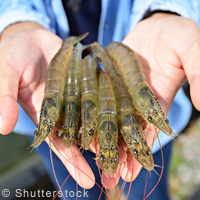Spreading European aquaculture excellence through training
An EU-funded project is organising four pioneering training courses designed to promote coordination and development within Europe's aquaculture community. Each course focuses on different aspects of aquaculture, and presents a valuable opportunity for researchers and technicians to further their experience. The next course, entitled 'Contribution of Genomic Approaches to the Development of Sustainable Aquaculture for Temperate and Mediterranean Fish', will take place in Rennes, France in October 2013. Registration for this course is now open. Course attendance is free, thanks to EU funding. Aquaculture, which involves the farming of a wide range of fish and mollusc species, has grown rapidly from a cottage industry into a lucrative pan-European concern. It is a sector in which technology plays an increasingly important role, helping to provide European producers with a competitive edge in the global market place. Much of the technology used in aquaculture is relatively simple, and includes improvements in feed, seeds and oxygen levels. High-tech systems, such as intensive closed breeding farms for export production, are also gaining prominence. The sector is continually evolving, and if European industry is to stay ahead of the competition, knowledge and expertise must be effectively shared and disseminated. The objective of the EU-funded AQUAEXCEL project is to better integrate key aquaculture research infrastructures, and to establish a research platform capable of disseminating knowledge. This will be carried out in collaboration with 17 partners and 23 facilities across Europe, and training will form a key part of the initiative. An online inventory of key aquaculture research infrastructures, facilities and services will also be developed. The first AQUAEXCEL course, which focused on Recirculating Aquaculture System (RAS) technology, was organised by Wageningen University (WU) in the Netherlands. After the Rennes event, the next courses will focus on 'The Application of Chromosome Set Manipulations' and the 'Importance of Gamete Collection and Management in Aquaculture', and will take place in Stirling, Scotland in November 2013. The fourth and final course, on 'Efficient Utilisation of New Monitoring and Control Systems in Fish Experiments', will be organised by the Norwegian University of Science and Technology (NTNU) and SINTEF Sealab, and is scheduled for May 2014. AQUAEXCEL, which will receive ¿9.2 million in EU funding under the Research Infrastructures area of the Seventh Framework Programme (FP7), will run until February 2015. The project is being coordinated by the Institut National de la Recherche Agronomique (INRA), France.For more information, please visit: INRA http://www.inra.fr/en/(opens in new window) AQUAEXCEL http://www.aquaexcel.eu(opens in new window) Project Factsheet
Countries
France



